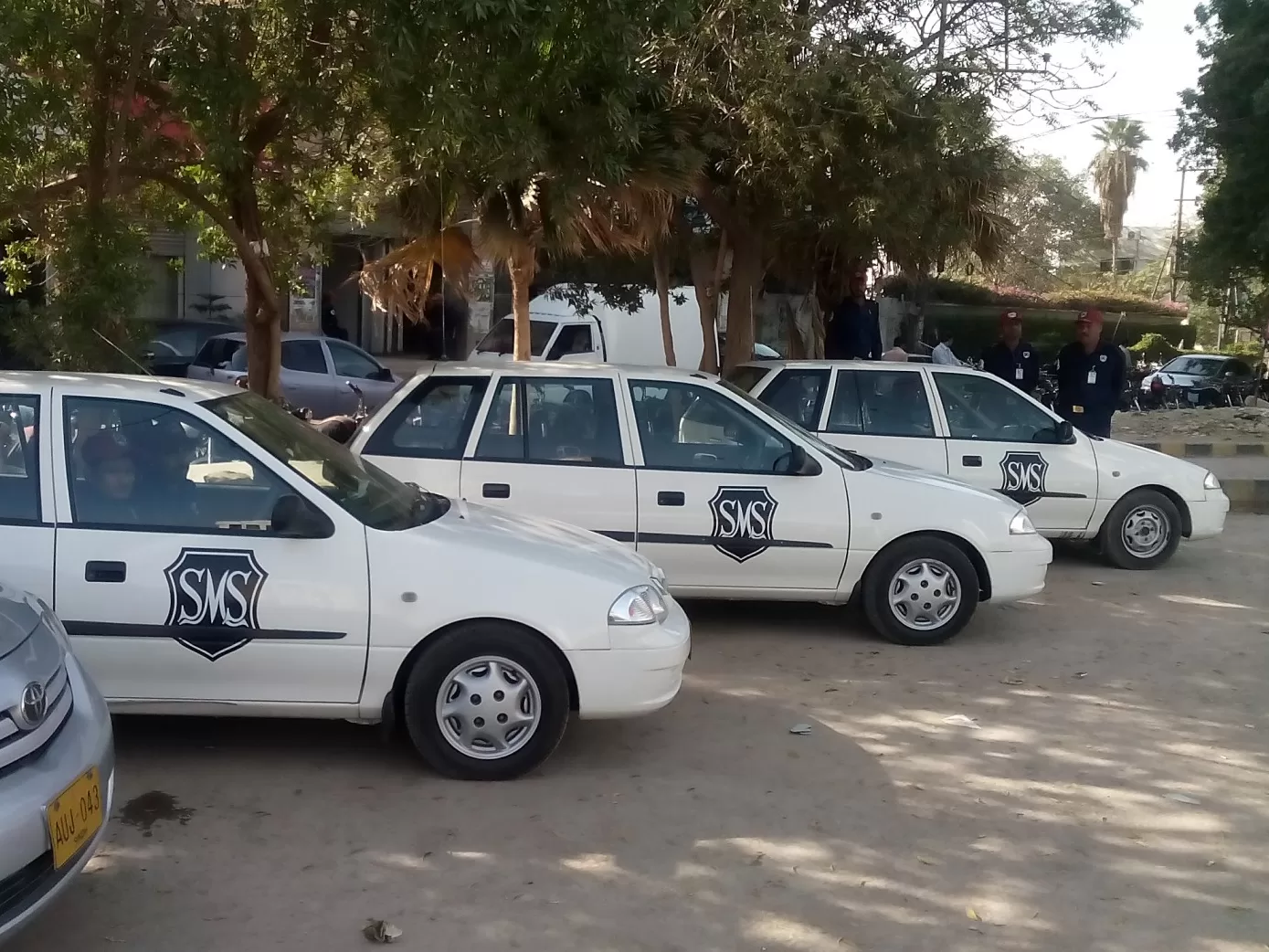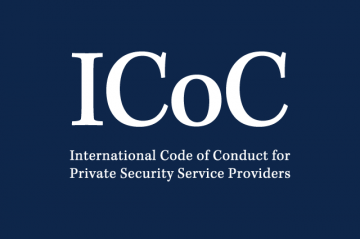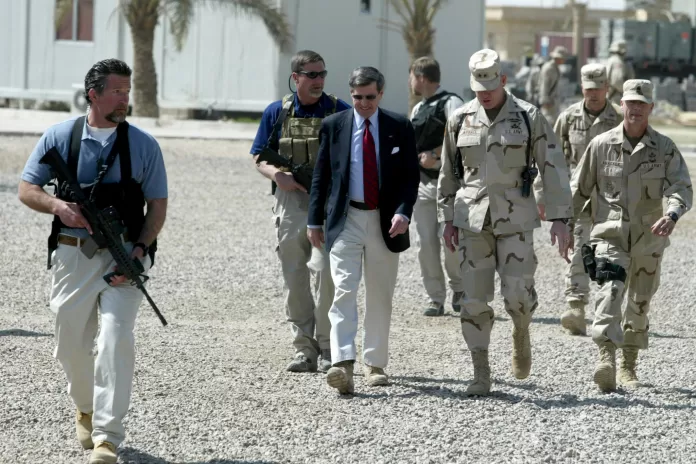Good governance in any society requires the safety and well-being of its citizens, peace and harmony cannot be maintained in isolation by the law enforcement agencies (LEAs) alone. Personal security remains the responsibility of the individual, corporate body, establishment, etc in any country of the world. While private security has given significant support to the LEAs in reducing their workload maintaining law and order, governments all over the world are increasingly turning to it as a cost-effective means. In US, UK Europe, etc govts are increasingly giving policing functions to the private sector, handing over management of jails, investigation of crimes, patrolling of select places, etc.
To its credit, the Federal Ministry of Interior (MOI), duly assisted by the intelligence agencies, has prevented private security companies from becoming “private military companies” like many such entities have become in the US, UK and Europe because of the business of “outsourcing” military tasks in war zones like Iraq and Afghanistan. “Convoy protection” morphed into other areas with companies like Blackwater (now known as “Xi”), etc even having their own aircraft and helicopter fleets. Mercenaries in all but name!
Private security is the driving force creating more jobs in the services sector at very small cost, a very potent economic force-multiplier. US$ 50000 in foreign exchange is required to create one job in the manufacturing sector, contrast that to less than US$ 300 (in training and verification) in equivalent Pakistan Rupees for an employment slot in private security.
To quote my article “PRIVATE SECURITY” of August 2002, “For many years, successive governments have been trying to regulate private security companies which first came into operation in Pakistan in 1984 but really started proliferating since 1986. Special credit must go to Mr Abdul Hafeez Shaikh, Sindh Finance Minister, in one short meeting he erased most of the difficulties the draft Ordinance had posed for years”. Subsequently the draft of an Ordinance crafted by the Sindh Government was emulated by MOI to regulate private security companies, ultimately being approved by the Federal Cabinet for the Islamabad Capital Territory (ICT) in the early 2000s. All Pakistan Security Agencies Association (APSAA) played a very critical role in the formulation of a workable document, many of APSAA’s worries about bureaucratic intercession affecting operational effectiveness were positively addressed. Thereafter, the Punjab Private Security Companies (Regulation and Control) Ordinance 2002 was promulgated on 19 October 2002, the NWFP (now renamed as Khyber Pakhtunkhwa) Ord. No. XLIX Ordinance 2002 being promulgated the same year.
To further quote the August 2002 article, “Between 1984 and 1986, there was a virtual monopoly of all private security in Pakistan by only one entity, a Joint Venture (JV) between a Pakistani and a US company. Despite desperate underhand efforts through use of bureaucratic influence the absolute domination of one single person over private security in Pakistan in the 80s faded and by 1987 other companies started to come on-stream. The number of letters this despicable individual wrote to government agencies against his competitors was not only crass commercial malfeasance but must be a world record in character assassination”. Instead of competing with other companies, extensive contacts in the bureaucracy and intelligence agencies were used (and are still used) to try and knock competitors out of contention. Sadly the same tactics of bureaucratic intervention is being used successfully even today in KPK, but not so successfully in ICT and other Provinces.

The public perception about private security is “manned guarding” followed by “Cash-in-Transit (CIT) services”. Overtaken by electronic security comprising remote CCTV surveillance, vehicle tracking services, home-alarm systems, cyber-security, facilities management, security consultancy etc, manned guarding and CIT now comprises only a small percentage of the business. With terrorists increasingly using new techniques of attack it is almost impossible to deter these without effective means of electronic security. Unfortunately electronics and cyber-security is given little (or no) importance in a country at the cutting edge of terrorism.
When any business involves life and death of human beings, of those being protected as well as those protecting them, that business needs special attention. The laws do regulate the business how to govern the companies but falls short not only in the implementation of that Ordinance by not addressing the rights of the clients and the company’s employees. To maintain the requisite standards, basic qualifications levels commensurate (or near commensurate) to developed countries is required. While it is convenient to blame the private security companies for lapses, what can they do except cut corners because of stiff competition making low prices to potential clients mandatory? Estimates range between 200000-250000 guards as employees of private security companies, and even more than that directly in private employment. With over 350 private security companies, only 220 members of APSAA have regulatory oversight by APSAA’s “Code of Conduct”. To bring private security guards and the companies under the ambit of Federal and Provincial regulations, membership of APSAA for both corporations and individuals must be made mandatory. Even a guard in private employment carrying a gun needs to be regulated and in uniform. How do you differentiate between a guard and terrorist in Shalwaz-Kameez which most private guards wear? APSAA could consider having a separate category of membership for individuals.
A Federal Commission headed by a retired superior court judge must examine the present situation and frame comprehensive rules and regulations for corporate bodies as well as individuals. This Commission must include representatives from the Ministry of Interior, the police services, IB and ISI, FBR and Ministry of Commerce. APSAA must be represented by its President and Secretary General, with representatives of the Pakistan Banking Association (PBA) and from each of the Provincial Home Departments.

The Commission must study the “International Code of Conduct for Private Security Providers” signed in Geneva on 09 Nov 2010 and frame rules and regulations thereof for viz (1) the service provider, inasfar as effective employees recruitment and verification (infidelity is a major factor for checking eg the Afghan guards killing their own US mentors and trainers recently), proper training facilities, adequate salaries allowances, benefits, insurance, bonuses, gratuity, payment of taxes, EOBI, Social Security payments, etc (2) the clients getting adequate service and performance for the charges invoiced, compensation for losses and inefficient service, non-adherance to govt rules and regulations, etc and (3) the govt’s regulatory mechanism using accountancy firms for due diligence of service provider and adherence to contractual terms by both service provider and client. A permanent legal entity must solve disputes to prevent using unethical methods to undermine competition on merit.
The Armed Forces and LEAs have comprehensive rules and regulations. From prevention and deterrence of crime, security guards in the private sector have gone onto countering-terrorism, employees carry guns and can (and do) die in carrying out the job entrusted to them. If they fail to do their job and/or are incapable of doing it, so will the clients! By govt edict, guards deserve to be paid a better minimum wage than the average normal worker reflecting their high-risk work environment and the threats they face daily, conversely clients need protection from companies giving them inferior and/or inadequate service.
Private security is a necessary industry in this security environment, it also needs protection!




